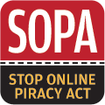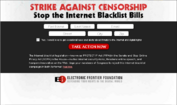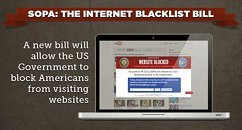
New Japanese Law Jails Illegal Downloaders for 2 Years
Japan passed a new legislation that could imprison illegal downloaders for two years. The country is combating illegal downloads as its local entertainment industry struggles. Recording Industry Association of Japan (RIAA's counterpart from across the Pacific) and its affiliates estimate Illegal downloads outnumbering legal downloads 10:1, with a 16% decline in legal downloads just last year.
The new law makes Japan the toughest state against piracy. Before it, Japanese laws, like most others', targeted uploaders of copyrighted content/software with up to 10 years in prison, and 10 million JPY (US $128,300) in fines. The new law allows the police to penalize mere downloaders with a 2-year jail term and 2 million JPY ($25,680) in fines.
The new law makes Japan the toughest state against piracy. Before it, Japanese laws, like most others', targeted uploaders of copyrighted content/software with up to 10 years in prison, and 10 million JPY (US $128,300) in fines. The new law allows the police to penalize mere downloaders with a 2-year jail term and 2 million JPY ($25,680) in fines.










